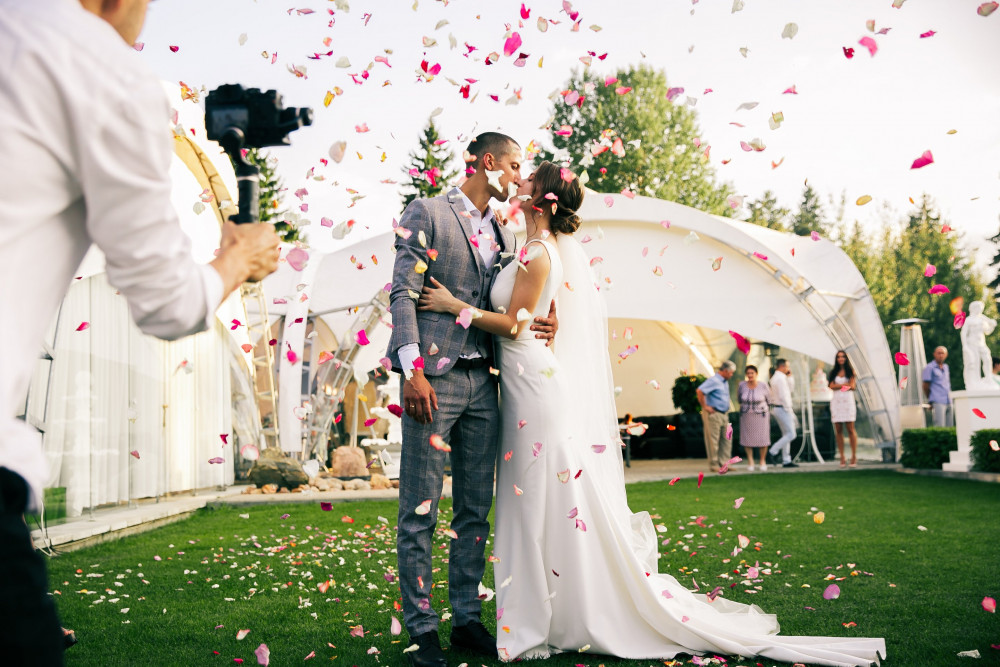
Beyond the Lens: What Brides Should Really Know About Wedding Photography
Created on: 02/08/2025
Updated on: 02/08/2025
Wedding photography is all about snapping great pictures — good enough for you to look at and remember your day for years to come. But with so many styles, packages, and options out there, it can be tricky knowing what you’re really signing up for.
In this blog we delve into some of the key things you can do to make sure you make the right choice — from knowing what to ask, to understanding styles, planning key shots, and knowing what you'll get after the big day.
1. Choosing a Photographer: More Than Just a Portfolio
A beautiful portfolio is a good start — but it’s definitely not the full picture. You're going to spend most of your wedding day with your photographer, so it’s just as important to find someone you feel comfortable with. That means someone who knows how to blend in, give direction without being overbearing, and capture the vibe of your day without turning it into a photoshoot.
When meeting photographers, ask:
- How many weddings have you shot?
- Do you work alone or with a second shooter?
- Can I see a full wedding gallery — not just highlights?
A full gallery shows consistency — not just the best 10 photos. Be wary of portfolios that are overly filtered, overly stylised, or don’t show how the photographer handles tricky conditions (like low light or typically ‘British’ weather).
2. Photography Styles and Creative Direction
Not all wedding photography is the same. Some couples want traditional, others want candid and documentary-style. Some prefer editorial, cinematic, or fine art vibes.
Here’s a quick breakdown:
Documentary – unposed, in-the-moment shots
Editorial – magazine-style, posed with creative flair
Traditional – classic posed photos with family and wedding party
Fine Art – soft tones, stylised and romantic
Cinematic – high drama, creative use of lighting and colour
Film-Inspired – vintage tones, often shot on real film
It helps to create a moodboard or share examples with your photographer — but also be open to their input. They’ll know what works best with your venue, time of year, and schedule.
If you’re planning any creative shots (drone footage, sparkler exits, silhouette shots), discuss them in advance so your photographer can get prepared and plan ahead.
3. Getting Specific: What Makes a Great Photo?
It’s not just about good lighting. Great wedding photos happen when the photographer has the right tools, knows the schedule, and is in the right place at the right time.
Some tips to make that easier:
- Think about backdrops — cluttered hotel rooms or ceremony spaces can affect the shot
- Assign someone (who knows the family!) to help gather people for group shots
- Build a rough timeline around key light moments (e.g. golden hour portraits)
- Ask your photographer how they manage low light — especially important for indoor ceremonies or winter weddings
- Check what kit they use and whether they bring backups in case anything fails
Your photographer should have the experience to work around all this — but the more you communicate, the better the result … and no surprises!
4. What Will You Actually Receive?
This is where things can vary a lot. Don’t assume you'll just "get all the photos." Find out exactly what’s included and how it will be delivered.
Ask:
- How many edited images will we receive?
- Will we get high-resolution files or just web-friendly versions?
- Are the photos delivered via USB, private gallery, or both?
- Can we request black-and-white copies or certain edits?
Common delivery options include:
Digital gallery — often with download options for guests
Printed photo book — usually a curated selection (not all your photos)
Video montage or slideshow — often an optional extra
Teaser set — some photographers send a handful of sneak peeks within 24–48 hours
It’s also worth asking how long the turnaround will be — many photographers take 6–8 weeks to deliver a full gallery, especially in peak season.
5. Extra Questions Worth Asking
Before you sign the contract, here’s a few extra questions that often get overlooked:
- Do you offer sneak peeks or previews?
- Can you stay later if the schedule runs over?
- What happens if you're unwell on the day?
- Do you have public liability and equipment insurance?
- Do you offer photo storage or backups after delivery?
